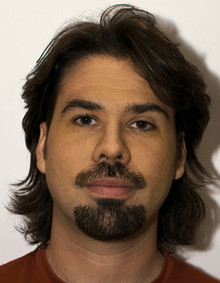Multi-scale degradation characterisation of advanced engineering materials used in demanding environments – E. Bousser, University of Manchester

Etienne Bousser, Visiting Research Fellow, The University of Manchester, School of Materials, Manchester, United Kingdom.
Economic and environmental concerns require that modern equipment be designed with ever more stringent performance criteria, frequently pushing components to the very limits of their capabilities. For that reason there is a strong need to develop new material systems that will allow components to maintain their structural integrity while being able to withstand the multitude of aggressions that can occur in service. Because material degradation processes occur at or near the surface of components, surface engineering can be used to locally modify properties. However, in order to design the appropriate protective system, it is of paramount importance to understand how these materials behave mechanically, how such surface treatments or coatings affect the underlying structural material and ultimately how they fail. Using this knowledge, novel material systems can then be designed for optimal performance by finding new chemistries, controlling microstructure or designing new architectures for increased performance.
In this presentation, the latest advances in micromechanical characterization methodologies used to follow damage evolution in engineering materials and components will be presented. This field of study is in rapid development due to the need to understand the effects of reducing dimensions on mechanical properties (i.e. in micro-devices or coated systems), the necessity to study the mechanical behavior of materials at the scale of their microstructure which ultimately controls overall performance in application, and the emergence of the necessary technologies for this type of testing. In addition, a multi-scale 3D workflow developed at the University of Manchester which combines X-ray Computed Tomography (XCT), serial sectioning by Focused Ion Beam milling (FIB) combined with Scanning Electron Microscope (SEM) imaging and analysis, and Scanning Transmission Electron Microscopy (STEM) will be presented. This approach allows for the study of a large range of materials through length scales in order to better understand the relationship between properties and the underlying microstructure by co-visualizing structural, crystallographic and chemical information.
Cette conférence est présentée par le RQMP Versant Nord du Département de physique de l'Université de Montréal et le Département de génie physique de Polytechnique Montréal.
Emplacement : 5155, chemin de la rampe 1035 Montréal H3T 2B2 QC Canada